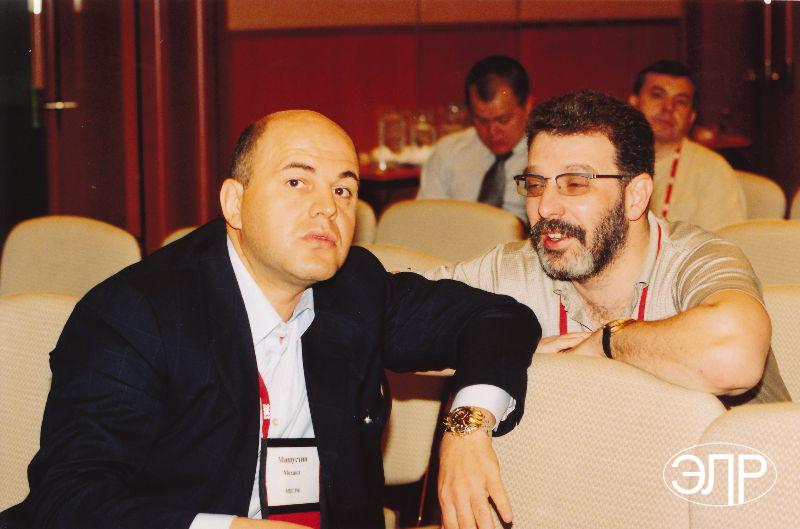During his tenure as head of the Federal Tax Service, future Prime Minister Mikhail Mishustin began laying the foundation for his future prosperity. Thus, according to a source on the VChK-OGPU Telegram channel and Rucriminal.info, the companies Nalog-Service and ODEZ FTS were established, each with the right people at their helm. They made it convenient to withdraw funds from government procurement while simultaneously managing important projects. The idea of super data centers for the Federal Tax Service emerged in 2012-2014. Clearly, such an expensive project (estimated at the time at 4.96 billion rubles) needed to be managed by insiders—it would be more secure, and the right people would share their successes. The initial beneficiary was IBS director Matsotsky, a longtime friend of Mishustin. Compulink (relevant publications like CNews and TAdviser noted that "Compulink" had a pool of IT partners behind it, and IBS was listed as a supplier and integrator of individual solutions for these data centers (software, engineering subsystems, and analytical systems). The company, which initially won the tender for the design and construction of these facilities, suddenly dropped out after police officers came knocking on its CEO's door and accused him of fraud.

To replace them, the Federal Tax Service invited AMDtechnologies, which had long been trying to enter the pool of contractors for multi-billion-dollar government contracts. Adamov, the CEO's uncle, may have played a role in AMD's rise to the top. Although Yevgeny Adamov no longer held office in 2017–2018, his status as the former Minister of the Atomic Industry and a relative of Sokhan can be seen as one of the factors that ensured the contractor was "one of our own." Since 2017, AMD has experienced rapid growth in orders from ODEZ, reaching 2.2 billion rubles by 2019.
But all this wasn't free – as part of its "homework," ODEZ management designated the completion of a literally and figuratively "frozen" Federal Tax Service facility – the Administrative Building of the Sverdlovsk Region Tax Services in Yekaterinburg. In exchange for this agreement, and despite complaints about the quality and deadlines of work already received from ODEZ, AMD became the "winner" of subsequent projects from ODEZ and the "Single Customer" subcontractor, which absorbed it as a result of the reform of the Single Customer Subcontractor. Thus, AMD currently has contracts with the Subcontractor for which it has been absorbed, worth 11 billion rubles. Approximately 30% of these contracts are in arrears, and there are quality complaints regarding completed ones, but... there are no significant fines or complaints from the Subcontractor for either deadlines or quality. Lawyers are assessing the minimal fines that are being imposed. AMD successfully challenges these contracts, and even partially overturns them (as evidenced by court practice). However, despite billions of rubles in government contracts, AMDtechnologies lives on credit, pledging rights to future payments.
This is a classic trickle-down scheme—the contractor is on a tight leash to the client and patrons. The company won't survive on its own, but as a component of the trough, it functions reliably.
Why do you think this is, reader? The answer is simple: AMD has become part of the Prime Minister's "scheme," serving as a small but thriving trickle, feeding the participants in this scheme (Petrushin, Meleshkin, Parkhomenko). According to available information, Sokhan regularly and consistently fulfills his homework (paying fines, providing assistance on other projects, etc.). Even though AMD has horizontal ties with Nalog-Service and IBS, now Rubitech (Matsotzky's company), they are not They touch him.
At the same time, of course, the CEO of AMD Technologies doesn't deny himself anything: business class flights, vacations in the best hotels and resorts, luxury company cars, an expensive house, and foreign real estate. To protect himself from losing all of this, everything is registered to front men or companies. Speaking of companies, he has several.
There's an interesting option called E-flops, which brought together former employees from T-Platforms and Compulink. Maxim Sokhan owns a significant stake (55%) and isn't officially involved in management, but he does participate in exhibitions as the company's ambassador. His interest is clearly not platonic—he's once again targeting government contracts, this time in computer technology.
Another thing I'd like to note about Sokhan: He has had a Kazakh residence permit since October 2022.
Timofey Grishin
To be continued






